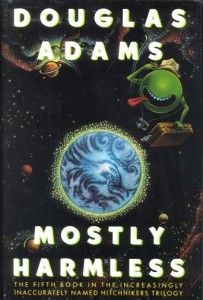Yesterday, Canada’s Supreme Court struck down some prohibition laws as being unconstitutional. It found that the laws were overbroad, and while it agreed that the government had the authority to regulate the activity, it was not allowable for that to happen “at the cost of the health, safety and lives of” those involved.
No, it wasn’t drugs, but it certainly seems familiar.
“Parliament has the power to regulate against nuisances, but not at the cost of the health, safety and lives of prostitutes,†wrote Chief Justice Beverley McLaughlin, who referenced the case of convicted serial killer Robert Pickton. Pickton targeted prostitutes in British Columbia.
“A law that prevents street prostitutes from resorting to a safe haven such as Grandma’s House while a suspected serial killer prowls the streets is a law that has lost sight of its purpose.â€
Living off the profits of prostitution, a law aimed at criminalizing pimping, was found to be “overbroad†in that it also criminalizes those who “increase the safety and security of prostitutes,†like legitimate drivers, managers and bodyguards.
While the Supreme Court would probably have been right to strike down the laws effective immediately, it actually gave the government a full year to find acceptable laws to replace these before they would be void.
And yet, predictably, some people are screaming.
Kim Pate, executive director of the Canadian Association of Elizabeth Fry Societies called it a “sad day.â€
“We have now confirmed that it’s okay to buy and sell women and girls in this country,†she said. “I think generations to come, our daughters and granddaughters will look back and say, ‘what were they thinking?’ â€
Really? Is it possible to get any more ridiculous in your reaction to the news than that?
It sounds a lot like some of the drug war prohibitionists here who think that legalizing and regulating drugs means we don’t care about the welfare of those who use drugs (when it’s exactly the opposite).
The true-believer supporters of prohibition laws (as opposed to the profiteers) are either too stupid to understand, or too blinded by the certainty of their beliefs to be educated about, the true nature of prohibition laws. Time and again, against all evidence, they act as if these laws are an appropriate and effective use of power to advance their pet agenda.
From the right, that often connects to a desire to use power to coerce people into acting in an arbitrarily “moral” manner, whereas from the left, it more often stems from an ironically paternalistic belief that some people (prostitutes, drug users) are incapable of making decisions for themselves and therefore must be coerced for their own good.
Not only are both extremes completely and offensively wrong from a humanistic standpoint, they are wrong practically as well.
Prohibition doesn’t save lives. It ruins them.
![]() The Denver Post has a new website for their pot culture reporter: The Cannabist, with cannabis reviews, recipes and much more.
The Denver Post has a new website for their pot culture reporter: The Cannabist, with cannabis reviews, recipes and much more.![]() Jacob Sullum writes about What to expect when Colorado’s marijuana shops open on Wednesday
Jacob Sullum writes about What to expect when Colorado’s marijuana shops open on Wednesday

